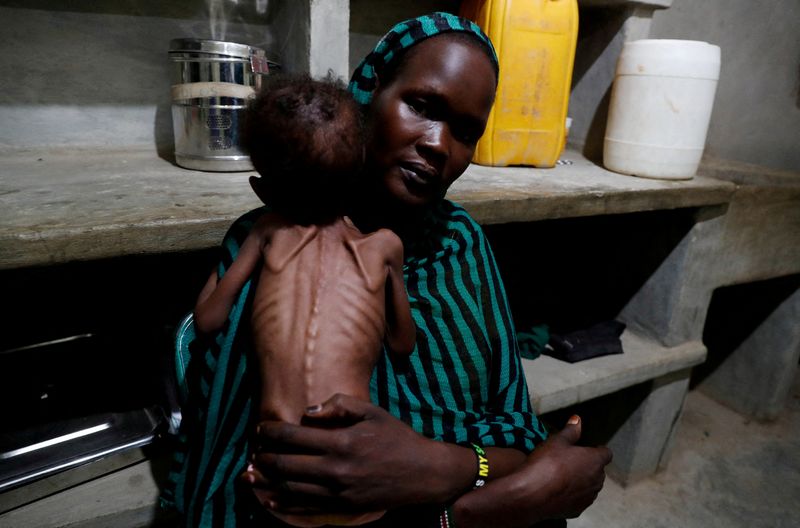Humanitarian corridors and pauses needed in Sudan, US envoy says

CAIRO (Reuters) – More and faster aid deliveries are needed in Sudan, the U.S. special envoy to the war-weary country told Reuters, ideally through the implementation of humanitarian corridors and pauses as discussed with government leaders in a visit on Sunday.
“We are pleased that there has been some progress, but we need to see much more,” Tom Perriello said in an interview, following the approval of flights to hunger-striken South Kordofan and the extension of permission to use the Adre border crossing into Darfur by the Sudanese army.
The army and the paramilitary Rapid Support Forces have been locked in a 19-month conflict that has caused acute hunger and disease across the country. Both sides are accused of impeding aid deliveries, the RSF by looting and the army by bureaucratic delays.
Proposals including humanitarian corridors and pauses were shared with Sudanese sovereign council head Abdel Fattah al-Burhan and others on a trip to Port Sudan on Monday and progress was made, Perriello said.
In October, the sovereign council approved flights into Kadugli to provide assistance to rebel-held regions of South Kordofan state, where people have gone hungry without aid deliveries, through an agreement with the South Sudanese government.
“I think if we can see that same attitude on the ability to get corridors into places like Khartoum, Omdurman, ElGezira, al-Fashir, Sennar I think we could get a lot of life-saving aid to some of the most desperate Sudanese,” he said.
In a speech on Tuesday, however, Burhan cast doubt on the speed of progress.
“Our vision is clear to all those who want to help us. The war must stop first and the rebels must leave the areas they have occupied,” he said.
“Once civilian life is back, relief can return and be available to all Sudanese,” he added.
U.S.-led efforts to bring the army and RSF to the negotiating table have not succeeded so far.
“We do remain in active lines of communication with RSF leadership on the negotiations around both humanitarian access and peace,” Perriello said.
(Reporting by Nafisa Eltahir, additional reporting by Khalid Abdelaziz, editing by Ed Osmond)